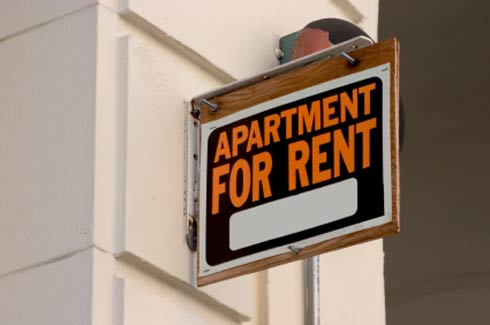Rental Scams on Craigslist
If you’re looking for a rental apartment, it’s very tempting to start with Craigslist, however beware of rental scams on Craigslist. There are definitely deals to be had, especially since individual owners list on the site.
However scammers like Craigslist just as much, as it provides so many opportunities to take advantage of people's trusting nature.

They use yahoo, ymail, rocketmail, fastermail, live, hotmail and gmail, and they also post ads under anonymous craigslist addresses. They frequently change their aliases.
They use photos stolen from other property advertisements or from home furnishing catalogues or hotel websites.
They use fake names, often stolen from Facebook profiles or networking sites. Often they assume the identities of previous victims.
Avoiding rental scams begins with understanding how they work. Once you know what to look for, your chances of identifying one before you hand over your money increase hugely.
How do the Rental Scams on Craigslist Work?
The most common scam is where a scammer rents a property so they can show to other people. They provide false information to the landlord and then rent it to as many people as they can before they disappear with the money.
They'll collect first and last month's rent, security deposits and any fees or charges they can squeeze out of their victims, and then disappear. It has been know for a property to be rented to dozens of victims before the scammer disappeared with all their money.
Another approach is taken by scammers overseas who have never seen the property. They will copy a photo and listing information from another property ad and use it themselves. The story will be along the lines that they are presently out of the country on holiday, business, military service etc so can't show you the property themselves. You will be asked to wire them the first and last month's rent, security deposits, and assorted fees first. The rental price will be attractive enough for people to think they are getting a bargain.
Another option is for the scammer to ask the victims to send small sums to receive copies of the house keys, so the victims can walk through the premises themselves.
Alternatively, the scammer forwards a rental application, or asks for information typically given on a rental application, such as driver's license number, bank account information, Social Security Number, etc so the scammer can carry out identity theft.
Most Scams Involve One or More of the
Following:
- Inquiry from someone far away, often in another country
- Western Union, Money Gram, cashier's check, money order, shipping, escrow service, or a "guarantee"
- Inability or refusal to meet face-to-face before consummating transaction
Tips on How to Avoid the Rental Scams on
Craigslist
- Visit the local county courthouse to look up property ownership for the apartment in question to find out who really owns it Is it the person you're dealing with or is it someone else?
- A warning sign is if the rent seems way too low, or if the landlord wants the money wired without showing you the house
- Scan any provided photographs carefully. Do they match up with what you've seen in person and do they look like they all came from the same place?
- An apartment is advertised at one price, but, when you show up, you're just a few minutes too late - it's already been rented. Conveniently, there is another building with a unit available nearby for just a little bit more
- If they don't ask for an application or permission to check your credit then be wary
- Consider using other methods for obtaining a rental such as using a real estate agent, or going through a rental agency
- Home ›
- Craigslist Scams ›
- Rental Scams on Craigslist